WESTPLAINING IN ART HISTORY
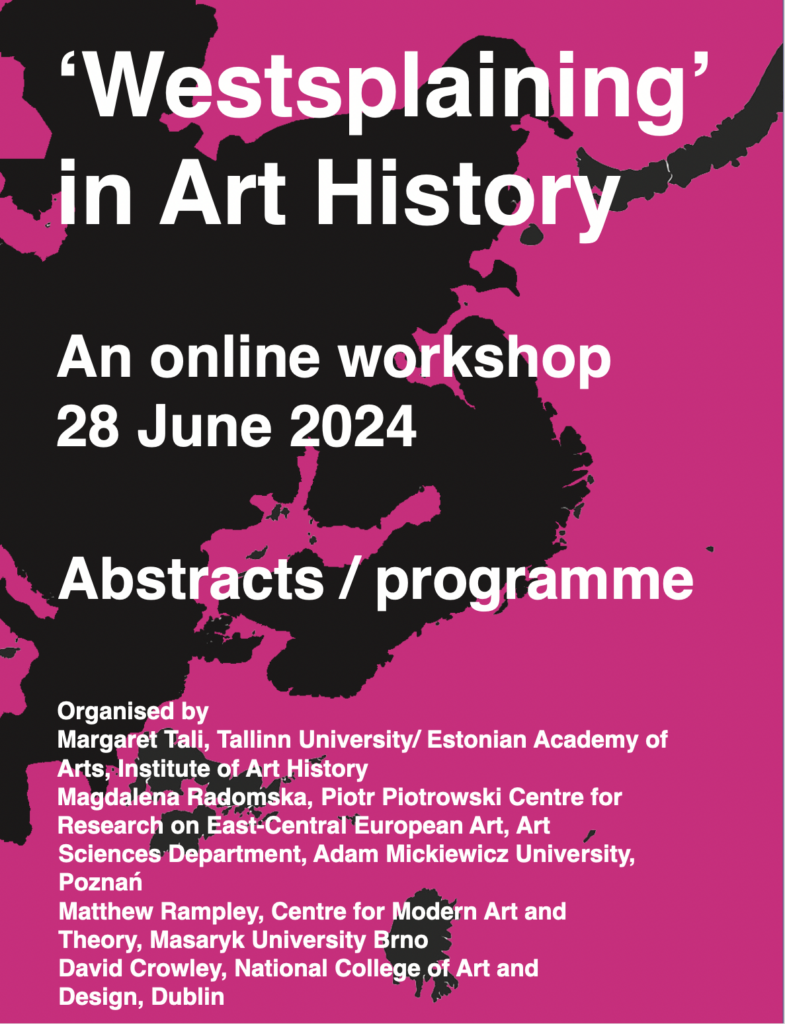
The term ‘westsplaining’ became popularized amongst political theorists in Central and Eastern Europe in the wake of the Russian invasion of Ukraine in 2022 and was used critically to denote the ‘phenomenon of people from the Anglosphere loudly foisting their analytical schema and political prescriptions onto the [Eastern European] region’ (Smoleński and Dutkiewicz). As such, it was a specific example of a wider, long criticized, problem to do with the colonial nature of knowledge production and the hegemonic status of (western) European and North American epistemic practices.
The critique was a response to debates in political theory, but it might be applied to many other domains of inquiry, including the humanities. It has gained increasing currency in art history, and this workshop aims to consider the different forms of art historical ‘westsplaining.’ The term implies the need for an intellectual archaeology, a recovery of local discourses and intellectual traditions that have been eclipsed by hegemonic western discourses. The workshop thus seeks to explore such alternative models of art historical analysis.
No registration needed
David Crowley, National College of Art and Design, Dublin
Magdalena Radomska, Piotr Piotrowski Centre for Research on East-Central European Art, Art Sciences Department, Adam Mickiewicz University, Poznań
Matthew Rampley, Centre for Modern Art and Theory, Masaryk University Brno
Margaret Tali, Tallinn University/ Estonian Academy of Arts, Institute of Art History
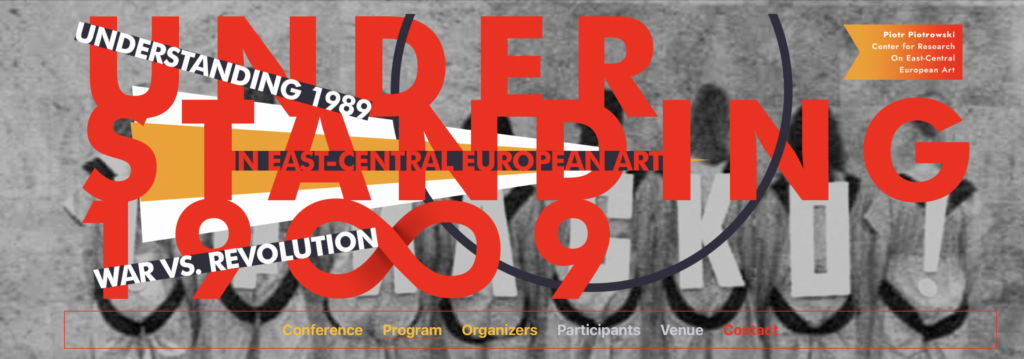
The Third East-Central European Art Forum
Understanding 1989 in East-Central European Art. War vs. Revolution
14-15 June 2024
programme: https://piotrpiotrowskicenter.amu.edu.pl/1989forum/program/
Fb event: https://www.facebook.com/events/800368388274868?ref=newsfeed
The third East-Central European Art Forum Understanding 1989 in East-Central Europe as War and Revolution is a part of project led by the Piotr Piotrowski Center for Research on East-Central European Art at Adam Mickiewicz University in Poznań, supported by the Getty Foundation as part of its Connecting Art Histories initiative. The aim of both the project and the conference is to create a platform for exchange of different narratives on the art produced as a result of the chain of events that unfolded in 1989 and in the following years (the fall of the socialist system in Europe, the end of the Cold War, the dissolution of Yugoslavia and Czechoslovakia, the collapse of the Soviet Union, followed by the transition to democracy and capitalism/market economy. Usually, the study of these phenomena is restricted to national contexts, languages, and geographical borders.
The conference marks the 35th anniversary of the events of 1989 and the 30th commemoration of the violent dissolution of Yugoslavia offers an opportunity to overcome these limitations in favour of a comparative narrative that focuses on both similarities and differences of the process of political, economic, and social transition in Eastern Europe, and East-Central European art. Understanding 1989 in East-Central Europe as War and Revolution is crucial for comprehension the contemporary situation in the region and more broadly – in Europe. Conservative governments in East-Central Europe have appropriated both events and narratives of 1989 for the sake of their own nationalistic, symbolic capital and in order to legitimise their own indispensability. At the same time, contemporary artists in this part of Europe investigate the political, economic and social changes, and the role of 1989 and its initial revolutionary potential, as well as confront the question of what went wrong. The ideological appropriation of 1989 as national liberation and restoration of national sovereignty has led to the proliferation of ethnic conflicts in the former socialist East and finally to the return of the spectre of war to the political scene of modern Europe, while revolution faded away.
The third East-Central European Art Forum – Understanding 1989 in East- Central European Art. War vs. Revolution aims at approaching these tendencies in the contemporary art and art history writing of the region as a peculiar re-appropriation of 1989, which – when understood as a revolution – creates the possibility to transgress national divisions and lay bare the common historical experience of this part of Europe. It is in this context that the notion of revolution, which has been totally ostracised by the discourse of the post- communist transition, as a political instrument of the totalitarian rule, deserves renewed attention, especially after the world financial crisis of 2008 that overlapped with the 20th anniversary of the fall of communism in Europe. The growing awareness of inequalities and the need to seek other solutions to the problems than those offered by conservative nationalism, provoked the visible reaction to reevaluate the communist and Marxist ideological background, as well as the criticism of capitalism in this part of Europe. This approach attempts to trace back the political and cultural process that marginalised topics related to class division, poverty, and other aspects of social and economic injustice. Thus the conference will also focus on artists’ reactions to the most recent events in the region – the current war in Ukraine or the contemporary revolutionary movements in post-communist/post-socialist Europe. Special attention will be given to the environment of contemporary Belarusian artists who have found refuge in Poznań. The conference will be accompanied by an exhibition of contemporary Belarusian, critical of political situation in Belarus art at the DOMIE gallery. The Poznan conference will also focus on the dialectics of war and revolution, with particular attention to art in the face of class war as a foundation for contemporary revolutionary movements.
- Call for Papers – Equal and Poor
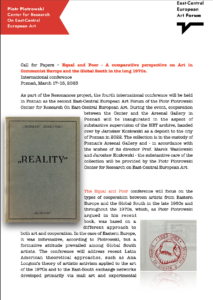 Call for Papers – Equal and Poor – A comparative perspecive on Art in Communist Europe and the Global South … Continue reading Call for Papers – Equal and Poor
Call for Papers – Equal and Poor – A comparative perspecive on Art in Communist Europe and the Global South … Continue reading Call for Papers – Equal and Poor - CALL FOR PARTICIPATION – UNDERSTANDING 1989
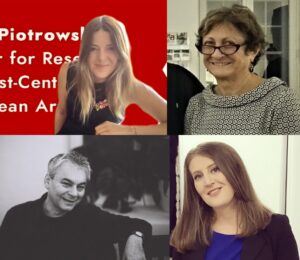 CALL FOR PARTICIPATION – UNDERSTANDING 1989 IN EAST-CENTRAL EUROPEAN ART: WAR VS REVOLUTION SUPPORTED BY GETTY FOUNDATION Piotr Piotrowski Center for … Continue reading CALL FOR PARTICIPATION – UNDERSTANDING 1989
CALL FOR PARTICIPATION – UNDERSTANDING 1989 IN EAST-CENTRAL EUROPEAN ART: WAR VS REVOLUTION SUPPORTED BY GETTY FOUNDATION Piotr Piotrowski Center for … Continue reading CALL FOR PARTICIPATION – UNDERSTANDING 1989 - UNDERSTANDING 1989 awarded
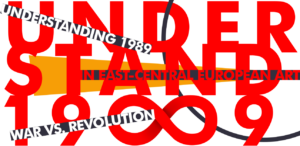 UNDERSTANDING 1989 IN EAST-CENTRAL EUROPEAN ART: WAR VS REVOLUTION GRANT BY GETTY FOUNDATION AWARDED TO PPCRE-CEA Piotr Piotrowski Center for … Continue reading UNDERSTANDING 1989 awarded
UNDERSTANDING 1989 IN EAST-CENTRAL EUROPEAN ART: WAR VS REVOLUTION GRANT BY GETTY FOUNDATION AWARDED TO PPCRE-CEA Piotr Piotrowski Center for … Continue reading UNDERSTANDING 1989 awarded - HORIZONTAL ART HISTORY
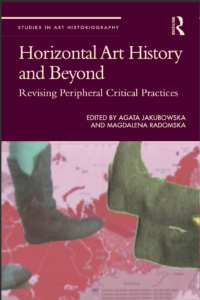 HORIZONTAL ART HISTORY:REVISING PERIPHERAL CRITICAL PRACTICES, edited by Agata Jakubowska&Magdalena Radomska, published by Routledge The book >Horizontal Art History and … Continue reading HORIZONTAL ART HISTORY
HORIZONTAL ART HISTORY:REVISING PERIPHERAL CRITICAL PRACTICES, edited by Agata Jakubowska&Magdalena Radomska, published by Routledge The book >Horizontal Art History and … Continue reading HORIZONTAL ART HISTORY - PUBLIC TALK IN BUCHAREST
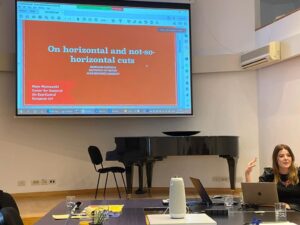 PUBLIC TALK BY MAGDALENA RADOMSKA @ NEW EUROPEAN COLLEGE IN BUCHAREST 23rd, June, 2022, 17.00. Lecture On horizontal and not-so-horizontal … Continue reading PUBLIC TALK IN BUCHAREST
PUBLIC TALK BY MAGDALENA RADOMSKA @ NEW EUROPEAN COLLEGE IN BUCHAREST 23rd, June, 2022, 17.00. Lecture On horizontal and not-so-horizontal … Continue reading PUBLIC TALK IN BUCHAREST
